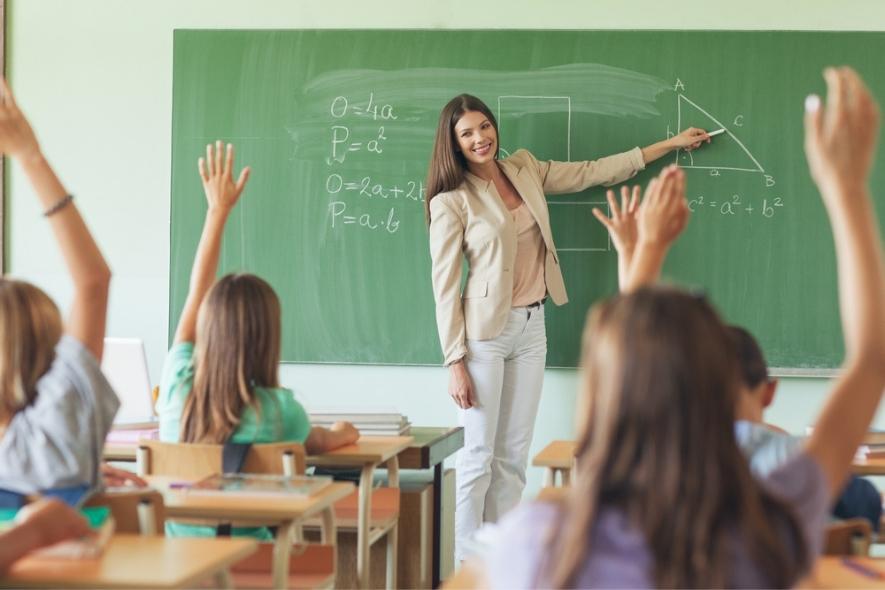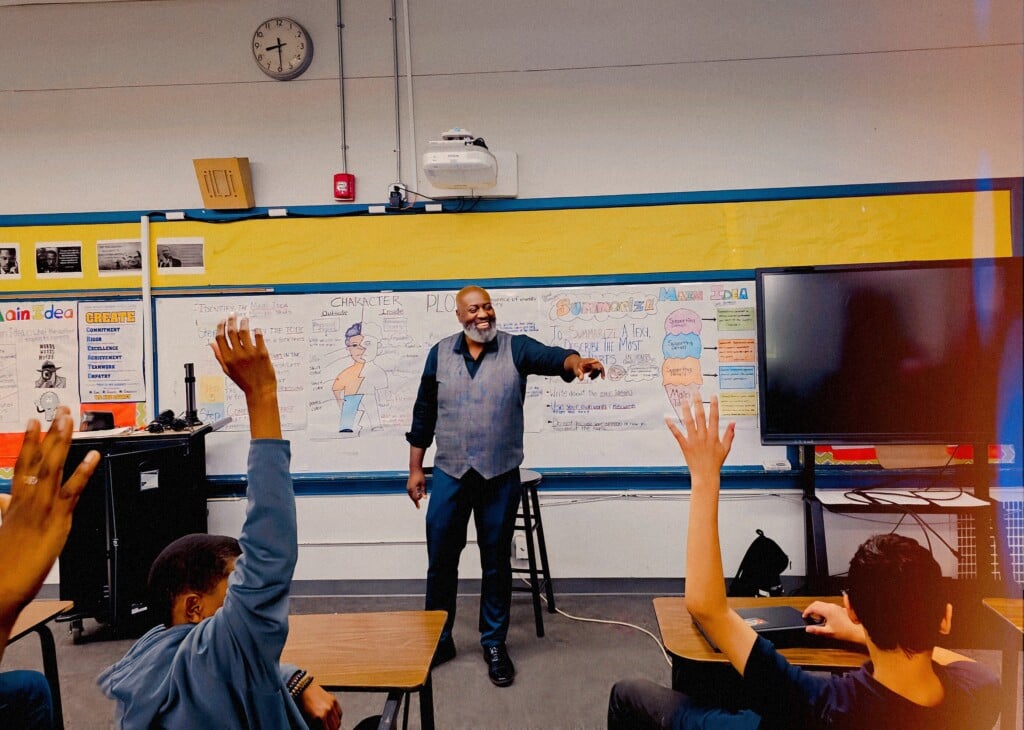Top Primary Science Tuition Singapore to Help Your Child Excel
Top Primary Science Tuition Singapore to Help Your Child Excel
Blog Article
Discovering the Different Training Techniques in Key Scientific Research Education And Learning Today
Inquiry-based understanding, hands-on experiments, and the integration of modern technology are redefining how instructors involve young minds. Additionally, collective methods and distinguished instruction are being employed to cater to the varied requirements of pupils, boosting both involvement and understanding.
Inquiry-Based Knowing
Inquiry-Based Learning (IBL) is a pedagogical approach that encourages pupils to explore scientific ideas through doubting, examination, and hands-on experimentation. This method emphasizes the duty of trainees as active individuals in their discovering, advertising critical reasoning and analytic skills. By engaging with real-world questions, students come to be curious and determined, which boosts their understanding of clinical concepts.
In IBL, teachers function as facilitators, assisting trainees as they navigate their inquiries as opposed to supplying info directly. This student-centered technique enables differentiation, suiting various finding out rates and designs. Students develop abilities in creating theories, designing experiments, and examining data, which are critical for clinical literacy.
Additionally, IBL promotes partnership amongst trainees, encouraging them to share concepts and findings. This cumulative query advertises social abilities and a feeling of neighborhood within the class. The procedure of questions urges durability, as students discover to welcome failure as a tipping stone toward understanding.
Hands-On Experiments
Hands-on experiments are an essential element of reliable science education and learning, complementing the principles of inquiry-based knowing. These experiments permit students to engage directly with clinical ideas, promoting a deeper understanding via experiential discovering. By manipulating materials and observing outcomes, young learners can comprehend abstract concepts in substantial ways.
Such activities advertise important reasoning and problem-solving skills, as trainees assume outcomes, conduct experiments, and examine outcomes. This process encourages them to ask concerns, fine-tune their understanding, and establish a scientific state of mind. Additionally, hands-on experiments can be customized to varied discovering designs, ensuring that all trainees have the chance to engage meaningfully with the content.
Moreover, hands-on experiments usually urge partnership among peers, promoting synergy and communication skills. Operating in groups allows students to share ideas, discuss searchings for, and gain from each other, which enhances their general academic experience.
Including hands-on experiments into the key scientific research curriculum not just enriches the finding out atmosphere but additionally grows a lifelong interest in science. By actively getting involved in their education, students are much more most likely to create a passion for clinical inquiry that extends beyond the class.

Modern Technology Assimilation
Integrating modern technology into primary science education has become significantly necessary in fostering trainee engagement and enhancing discovering end results. Making use of digital devices, such as interactive simulations, digital laboratories, and academic software application, provides students with possibilities to explore scientific concepts in cutting-edge methods. These resources promote a deeper understanding of intricate topics by permitting learners to envision and control variables that would be not practical in a typical classroom setting.
Moreover, modern technology integration motivates individualized discovering experiences. Trainees can progress at their very own rate, taking another look at tough concepts via multimedia Go Here sources, which accommodate different discovering styles. This flexibility not just supports individual development however additionally grows a feeling of autonomy in learners.
Furthermore, technology offers as a bridge to real-world scientific research, linking trainees with present study and expert payments. Access to scientific journals and on the internet data sources widens trainees' point of views on scientific inquiry and fosters critical believing abilities.
Collaborative Discovering
Joint learning plays a crucial function in primary science education by cultivating synergy and communication abilities among pupils. This strategy urges learners to collaborate, share expertise, and participate in analytic, which enhances their understanding of clinical principles. By participating in group tasks, trainees discover to articulate their concepts, listen to diverse viewpoints, and work out remedies, every one of which are important skills in both academic and real-world contexts.

Research study suggests that collaborative understanding can lead to increased inspiration and engagement in scientific research topics, as trainees discover enjoyment in common experiences (primary science tuition Singapore). In addition, this approach prepares trainees for future collective endeavors, outfitting them with the abilities essential for effective teamwork in college and specialist atmospheres. Eventually, accepting joint understanding in primary science education can significantly enhance the understanding experience and advertise a much deeper understanding of scientific query
Set Apart Guideline

Distinguished instruction can manifest in numerous methods, such as differing the content, procedures, or products of discovering. As an example, instructors might utilize tiered tasks that offer differing degrees visit homepage of complexity, permitting pupils to operate at their corresponding preparedness degrees. Furthermore, versatile organizing approaches can promote collaboration amongst trainees with different capacities, fostering peer discovering.
Evaluation plays an important duty in this method, as it educates guideline and aids instructors comprehend each pupil's special demands. Formative assessments, such as quizzes and monitorings, can assist educators in adjusting their approaches to enhance discovering end results. primary science tuition Singapore. Inevitably, by implementing distinguished direction in main scientific research education, teachers can cultivate a much more equitable and efficient understanding environment, equipping all trainees to reach their full possibility in understanding clinical phenomena
Verdict
In recap, the diverse teaching methods in primary scientific research education and learning, including inquiry-based learning, hands-on experiments, technology assimilation, joint discovering, More Bonuses and distinguished instruction, collectively add to a much more efficient knowing environment. These methods promote vital reasoning, analytic skills, and a much deeper comprehension of clinical concepts. By implementing these techniques, teachers can create engaging and encouraging classrooms that address the varied needs of pupils, ultimately fostering a long-lasting rate of interest in science and improving academic achievement.
Inquiry-Based Discovering (IBL) is an instructional approach that motivates pupils to explore clinical concepts with questioning, examination, and hands-on testing.Joint knowing plays an important function in key science education by cultivating teamwork and interaction skills amongst pupils.Study shows that collective understanding can lead to enhanced inspiration and engagement in science topics, as trainees locate enjoyment in shared experiences.In fostering a comprehensive discovering environment, set apart instruction emerges as a vital strategy to fit the varied demands and abilities of trainees in main scientific research education and learning. Eventually, by implementing differentiated direction in key science education and learning, teachers can grow an extra reliable and fair knowing environment, empowering all trainees to reach their full capacity in comprehending clinical sensations.
Report this page